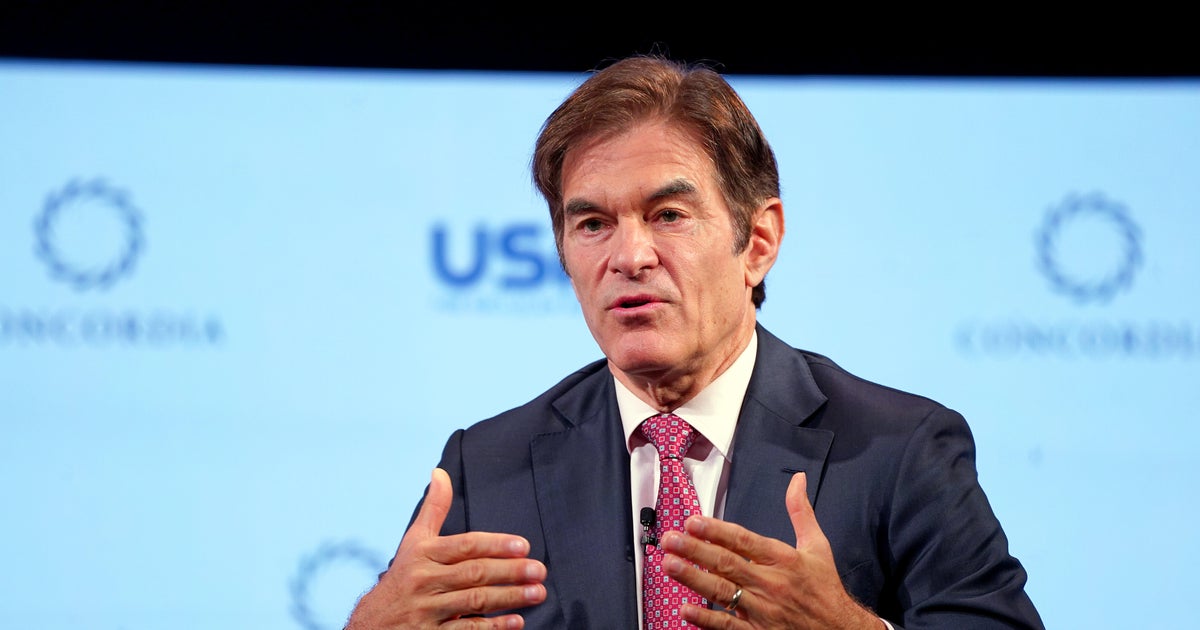Anti-abortion pregnancy centers see chance to grow in wake of Supreme Court's ruling
Washington — The Supreme Court's decision last month nullifying the constitutional right to an abortion has opened a path for organizations that aim to dissuade women from having abortions to expand their operations, especially in states that have banned the procedure or restricted access, prompting their few abortion clinics to shutter.
Known as crisis pregnancy centers, there are more than 2,500 of these facilities in the United States, and they vastly outnumber Planned Parenthood facilities, according to an analysis from the Charlotte Lozier Institute, the research arm of the anti-abortion group Susan B. Anthony Pro-Life America.
The centers, many faith-based, offer pregnancy tests, counseling and resources like clothes, diapers and parenting classes. Some provide limited medical services such as ultrasounds. And since the high court's conservative majority struck down Roe v. Wade, the landmark decision that legalized abortion nationwide, the pregnancy centers — particularly in Republican-led states — have seen an uptick in interest from their communities and an opportunity to grow their resources.
"We need to make our presence even more known," Karen Sims, executive director of Hope Clinic in Hattiesburg, Mississippi, told CBS News. "If it's our responsibility and important for us to encourage people to continue their pregnancies, then we need to be there and provide what we can, to eliminate as many obstacles as we can."
Hope Clinic is one of 30 anti-abortion centers in Mississippi and among the few that offer limited medical services. Located in the same town as the University of Southern Mississippi, Sims said the facility sees between 25 and 35 new clients each month, with the average age between 18 and 24 years old.
Sims said that since the Supreme Court's decision rolling back Roe, the center has seen an increase in calls from neighboring states and more interest from first-time donors looking to fulfill either material needs — diapers, formula, wipes — or give money.
"We want to grow the practical resources that we provide and educate her more, but also be there to help her look at the obstacles in the way and help be part of eliminating and working through those obstacles," she said.
At the Center for Pregnancy Choices in Meridian, Mississippi, new staff members were hired in anticipation of the court's ruling, and the center is transitioning to begin offering limited medical services, according to executive director Sara Smith.
The facility has also fielded more calls to its crisis line — including from pregnant women in Louisiana, Texas and Tennessee seeking abortions — and has seen a rise in clients who are pregnant or postpartum.
"We don't want women to think abortion is the only solution to unplanned pregnancy," Smith told CBS News. "That's a real message that's being shared, 'how to make it easier for people to get abortions.' It's not the only option they have."
Like most centers, the Center for Pregnancy Choices does not refer patients to abortion providers. Experts note an increase in calls could be the result of internet searches that bring pregnant women looking for abortion clinics to the websites of crisis pregnancy centers instead. A June report from the Center for Countering Digital Hate, a group that aims to counter disinformation online, found that 1 in 10 Google search results for abortion services — "abortion clinic near me" and "abortion pill" — in the 13 states with so-called "trigger laws" lead to websites of pregnancy centers.
"They are a public-health concern in that the services that they provide are not in line with medical practice standards, with national recommendations, and their ethical practices are not in line with ethical standards as well," said Andrea Swartzendruber, an epidemiology and biostatistics professor at the University of Georgia who has mapped crisis pregnancy centers. "They are almost totally unregulated. They are not medical facilities. They do not have patients."
Swartzendruber said there has been concern about centers spreading false or misleading information about health topics to promote their goals, but she expects these anti-abortion facilities to grow in prominence following Roe's reversal, particularly in states where abortion is banned or access severely limited.
In addition to receiving funding from private donors, lawmakers in some Republican-led states have directed funding to the centers. In May, Mississippi Gov. Tate Reeves, a Republican, signed into law a measure that provides tax credits to businesses that donate to pregnancy resource centers or crisis pregnancy centers. Texas awarded more than $46 million to four service providers, which work with 177 locations around the state, for its Alternatives to Abortion program for fiscal year 2021, according to a December report from the Texas Health and Human Services Commission.
With public dollars flowing to the centers in some states, Swartzendruber said the question for them amid the new landscape for abortion policy is, "if you are about maternal and child health, how do you use your influence, your resources, your networks" to assist women, including by advocating for parental leave policies and making child care more affordable and accessible?
"If they're saying they want to improve maternal and infant health outcomes, do they expand beyond that to advocate for policies and evidence-based programs that we know improve health outcomes?" Swartzendruber asked.
While some states are implementing mechanisms to boost funding to pregnancy centers, others are imposing regulations on the facilities. In Connecticut, which has 20 pregnancy care or resource centers, a law enacted in 2021 prohibits them from using deceptive advertising. In neighboring Massachusetts, Attorney General Maura Healey issued a consumer warning after Roe's rollback about the "limited and potentially misleading nature" of the services offered by crisis pregnancy centers.
An executive order from President Biden that seeks to protect abortion access also directs the secretary of health and human services, with the attorney general and chair of the Federal Trade Commission, to "consider options to address deceptive or fraudulent practices related to reproductive healthcare services, including online, and to protect access to accurate information."
But amid the backlash to the Supreme Court's decision, which began after a draft opinion was leaked and published in early May, pregnancy centers have also been targeted by abortion-rights advocates. In Florida, an anti-abortion pregnancy center was defaced in late May, with the words "If abortions aren't safe then neither are you" painted on its exterior. Centers in Texas and Wisconsin have also been vandalized.
Brittany Sherman, executive director of Choices Clinic of Laurel, told CBS News her Mississippi center has experienced fake calls and a flood of online contact-form submissions, which she believes is intended to crash the site.
Mississippi is one of 13 states with a trigger law, in which abortion was banned as a result of the high court's ruling overturning Roe. Following certification of the law by Attorney General Lynn Fitch, the state's lone abortion clinic, Jackson Women's Health Organization, which was at the center of the legal fight that upended abortion rights, closed its doors.
But Fitch said that with abortion policymaking now returned to the states, lawmakers must strengthen the social safety net for women during pregnancy and after childbirth.
"It is time for an open and frank dialogue about issues like: the affordability and accessibility of childcare, child support enforcement that requires fathers be equally responsible for their children, workplace policies like maternity and paternity leave, streamlining adoption, and improving foster care," she said in a statement earlier this month. "It is time not just to talk about these issues, but to take action on them."
To bolster the network of services available to women with unplanned pregnancies in anticipation of the rollback of abortion rights, Susan B. Anthony Pro-Life America launched an initiative that aims to connect them with "life-affirming" providers who can offer medical, financial or material assistance.
Called the Her Pregnancy and Life Assistance Network, or Her PLAN, the initiative aims to create a "strong safety net so that when there are additional pregnant and parenting women that need help, we would be able to meet the increased demand where abortion is restricted," Chaney Mullins Gooley, Her PLAN's program manager, told CBS News.
The project currently has directories of providers for four states — West Virginia, Virginia, Georgia and Mississippi — and plans to expand to 30 states by the end of 2023.
"The pro-life movement doesn't end now just because abortion is illegal," Gooley said.



